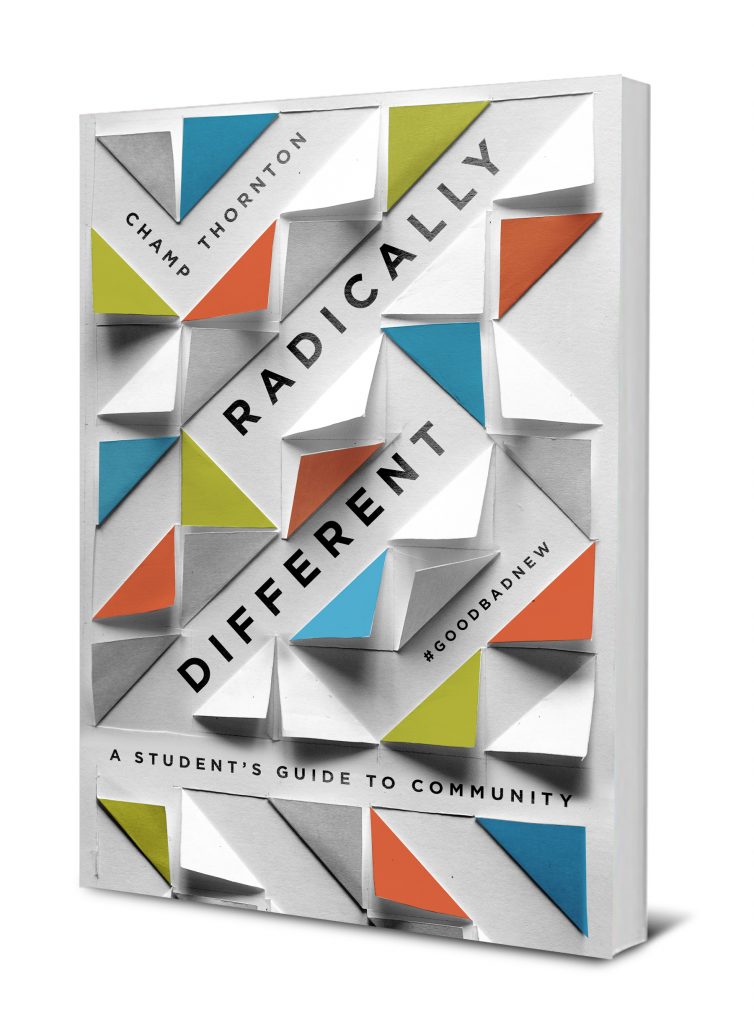In the year 1610, Galileo had a problem. On the one hand, he had done something amazing. Using two glass lenses, he had constructed a telescope that enabled him to see craters on the surface of our moon and four of the moons orbiting Jupiter. Yet, there was a big downside. These images, though magnified thirty times, were blurred and rimmed with a rainbow effect of colors. No one could study the images closely. Today astronomers call this distortion a chromatic aberration.
Fast forward 150 years and enter the man who solved Galileo’s problem: English optician, John Dolland. With his discovery, even distant images snapped into focus, and the color halo vanished. Dolland’s solution? He added a third lens. Now Dolland and every other stargazer could see distant planets with a brand new sharpness of sight.
Astronomers aren’t the only people who, when looking into the dark, desire greater clarity. Parenting can feel a lot like a search in the dark too. From the moment their children are born, many parents find themselves asking questions about the best path forward. What does my child need right now? How do I guide him or her toward wise choices? How can I help them navigate difficult or delicate decisions in life?
The complexity of raising a child can make the best parent long for simple answers: Should my response be yes or no? What’s the right or wrong decision? And how can I teach my children to make those right choices? God’s Word provides the answer, but it isn’t a rulebook, and it doesn’t always give binary options. God’s Word doesn’t just tell you what movies are okay for what ages, what clothes are appropriate, or what invitations to parties or sleepovers should be accepted or rejected. The Bible does not offer a two-lens solution to these questions. It provides three.
Creation. Fall. Redemption.
These three realities define the story of God’s world. That’s because they define the story of the God’s Word.
The Bible teaches us that everything in this world contains traces of good because God created it (Genesis 1:31; 1 Timothy 6:17). Still we know that nothing on planet earth has escaped being contaminated to some degree by sin (Genesis 3:16-19; Romans 8:20-23). Yet by his life, death and resurrection, Jesus Christ came to make all things new, partially in the present and perfectly in the future (2 Corinthians 5:17; Revelation 21:5). Creation, fall, redemption. . . Good, bad, new.
These are three foundational truths that we look at in Scripture, but they’re also three lenses of Scripture we must look through. So, when as parents, we need to make some judgment call about a difficult issue, let’s stop and consider, “What about this situation is good because it’s created? What about it is broken because of the fall? And how has Jesus transformed it?”
Good. Bad. New.
For example, do your kids need to remember that their siblings are created in God’s image and, therefore, have value? (Good) Or do they need to realize mom and dad aren’t perfect, that they’re flawed and sinful people too? (Bad) Do they need to remember that as good and fun as sports or friends are, Jesus and his priorities are more important? (New)
Drop any of the three lenses, you’ll get a distorted view on life. For biblical clarity, even on challenging issues, you need all three perspectives: good, bad and new. This is why I wrote Radically Different: A Student’s Guide to Community. It’s a thirteen-week devotional study that twelve to sixteen year-olds can do on their own or as part of a discussion group.
Here’s my hope: I want us to teach middle schoolers and young teens to begin looking at all of life, and especially at relationships, through the lenses of creation, fall and redemption. So, for each week of this study, we look at different relationships (with God, family, or friends) from these three aspects.
It’s all about our relationships
First, we examine what’s valuable about a certain relationship (such as friends, technology, family, etc.) (good). Then, we take a look at relationships through the lens of the Fall (bad). How has sin impacted and complicated this relationship? Finally, how do we relate to others in light of Christ’s redemption (new)?
There are, of course, dozens of biblical passages and observations that could be considered regarding any one of the relationships covered, but I don’t aim to be exhaustive or provide a topical dictionary of issues.
The goal is more modest—helping students in middle school to start thinking biblically about life and relationships, even if this mindset is out of step with the currents of the day.
I hope to help the next generation, my own children included, live more in harmony with the realities and relationships of God’s Word and world. May the Lord lead their relationships to be radically biblical and radically different.
RADICALLY DIFFERENT: A STUDENT’S GUIDE TO COMMUNITY
Radically Different by best-selling author Champ Thornton is an insightful guide for middle and high school students who want to live radically even though life and relationships are complicated. By examining life through the biblical lenses of Creation, Fall, and Redemption, readers can explore how God’s Word untangles the twists of life.






